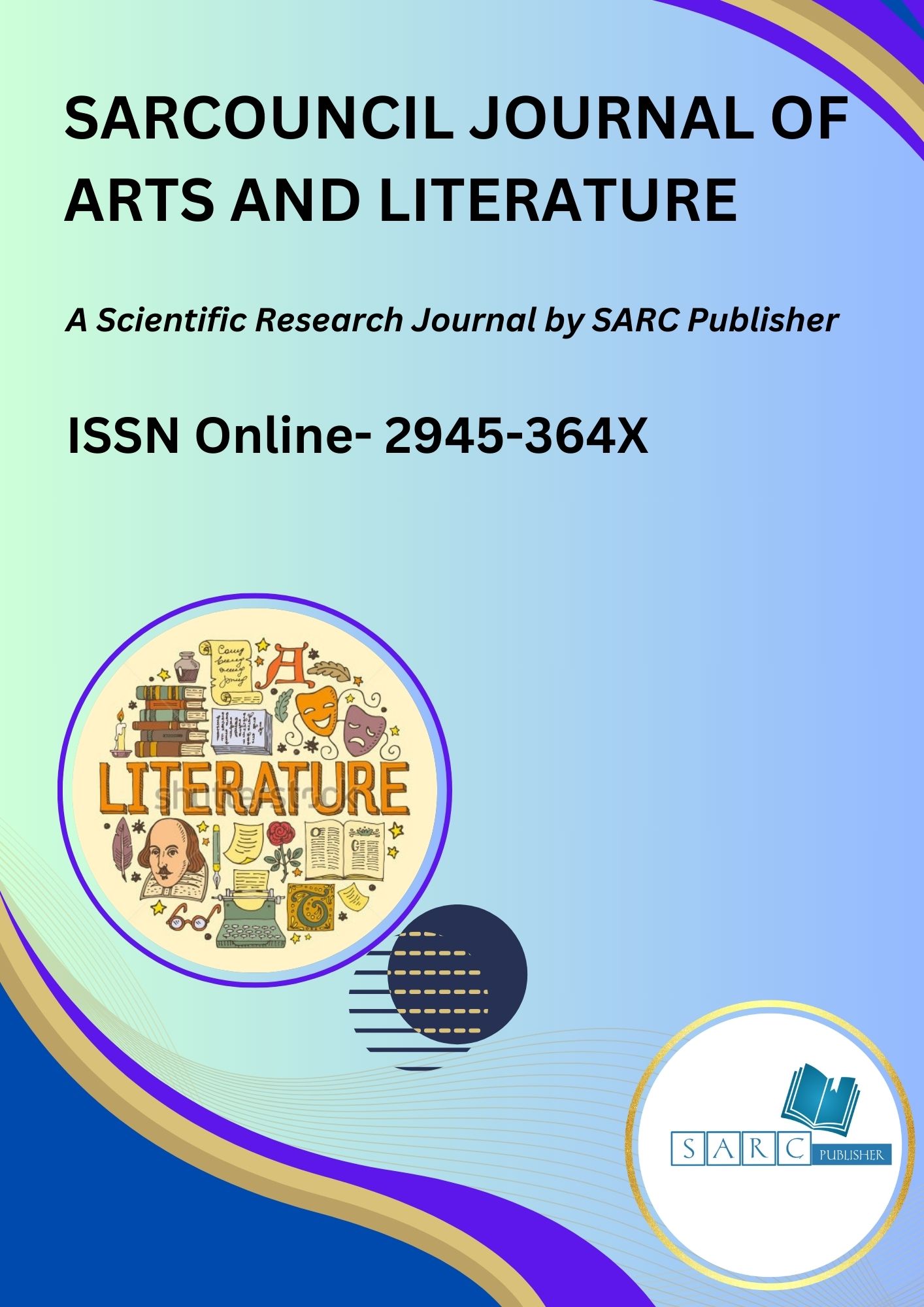Sarcouncil Journal of Arts and Literature Aims & Scope

Sarcouncil Journal of Arts and Literature
An Open access peer reviewed international Journal
Publication Frequency- BI-Monthly
Publisher Name-SARC Publisher
ISSN Online- 2945-364X
Country of origin-PHILIPPINES
Impact Factor- 4
Language- Multilingual
Keywords
- Trade, Arts, History, Literature, Religion, Marriage, Family Life, Philosophy, Sociology, Demography, Library Science, Journalism, Media Studies, Languages, Acrobatics, Busking, Geospatial Information Science, Comedy, Dance, Magic, Music, Opera, Film
Editors

Dr Hazim Abdul-Rahman
Associate Editor
Sarcouncil Journal of Applied Sciences

Entessar Al Jbawi
Associate Editor
Sarcouncil Journal of Multidisciplinary

Rishabh Rajesh Shanbhag
Associate Editor
Sarcouncil Journal of Engineering and Computer Sciences

Dr Md. Rezowan ur Rahman
Associate Editor
Sarcouncil Journal of Biomedical Sciences

Dr Ifeoma Christy
Associate Editor
Sarcouncil Journal of Entrepreneurship And Business Management
The Impact of Social Changes on the Status of Women in South Korean Society in the Second Half of the 20th Century
Keywords: South Korea, gender, reformer, public school, reform education, women?s education, Confucianism, social life, politic, sirhak, tonhak, colonial era.
Abstract: The article examines the history of widespread subordination or submission of women, from this point of view, which in capitalist societies is considered as a deviation from the proclaimed Western social norms of equality, freedom and justice. It is assumed that all problems of gender inequality in society can be solved within the framework of the Western system by introducing legal reforms and changing attitudes towards them. According to this point of view, it is assumed that women can be liberated by being integrated into the modernization process and the social sphere of capitalist structures. Thus, the study of the social status of women in society raises a lot of controversy about the type of social system that is most conducive to the emancipation of women. The Western model of modernization implies that accelerated industrialization removes traditional restrictions for women and will change the traditional sexual division of labor, thereby contributing to the liberation of women. This is due to the fact that the results of modernization primarily affected men working in the public sphere, while women were limited to the domestic sphere.
Author
- Laziza Alimova
- Lecturer; Department of “History and Anthropology of the Countries of the East” Tashkent State University of Oriental Studies; Uzbekistan.

